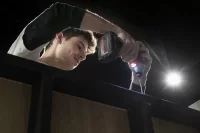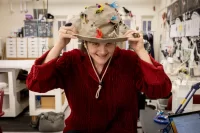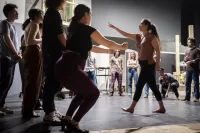
“Clowns are poets of the heart,” Wesley Broulik tells the Bates students sitting on the Schaeffer Theatre stage. “It’s amazing how close tears and laughter are to each other.”
It’s a Friday afternoon, and Broulik, an actor, director, and teacher, is in town for two days to give clowning lessons to the cast of the Bates theater department’s forthcoming production of Shakespeare’s Much Ado About Nothing.
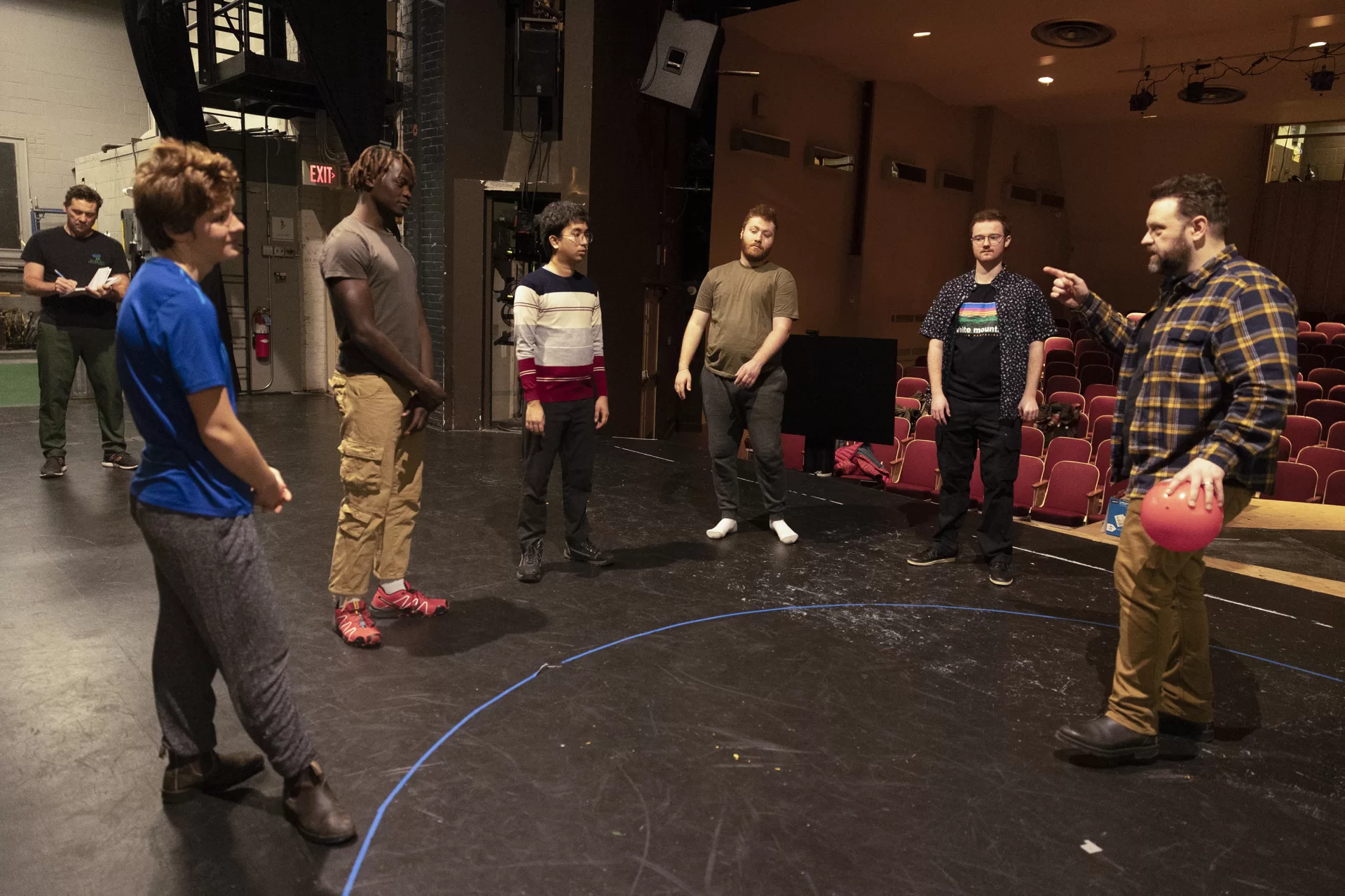
Broulik isn’t so much teaching the students how to clown, explains Tim Dugan, assistant professor of theater and director of the Bates production. “This isn’t like birthday party clowns with red noses.”
Rather, the goal is to help the actors access their inner clown, to “get underneath some of the masks we tend to wear for various reasons,” he says. “Clowning can be very playful and very athletic — and very vulnerable. A clown doesn’t have lines and doesn’t have anything to hide behind.”
Everyone, Broulik told the students, has a clown within, and learning how to tap into that playful, larger-than-life persona is essential for theater. “And there’s no such thing as ‘bad’ theater,” he tells the students, “only theater with bad play in it.”
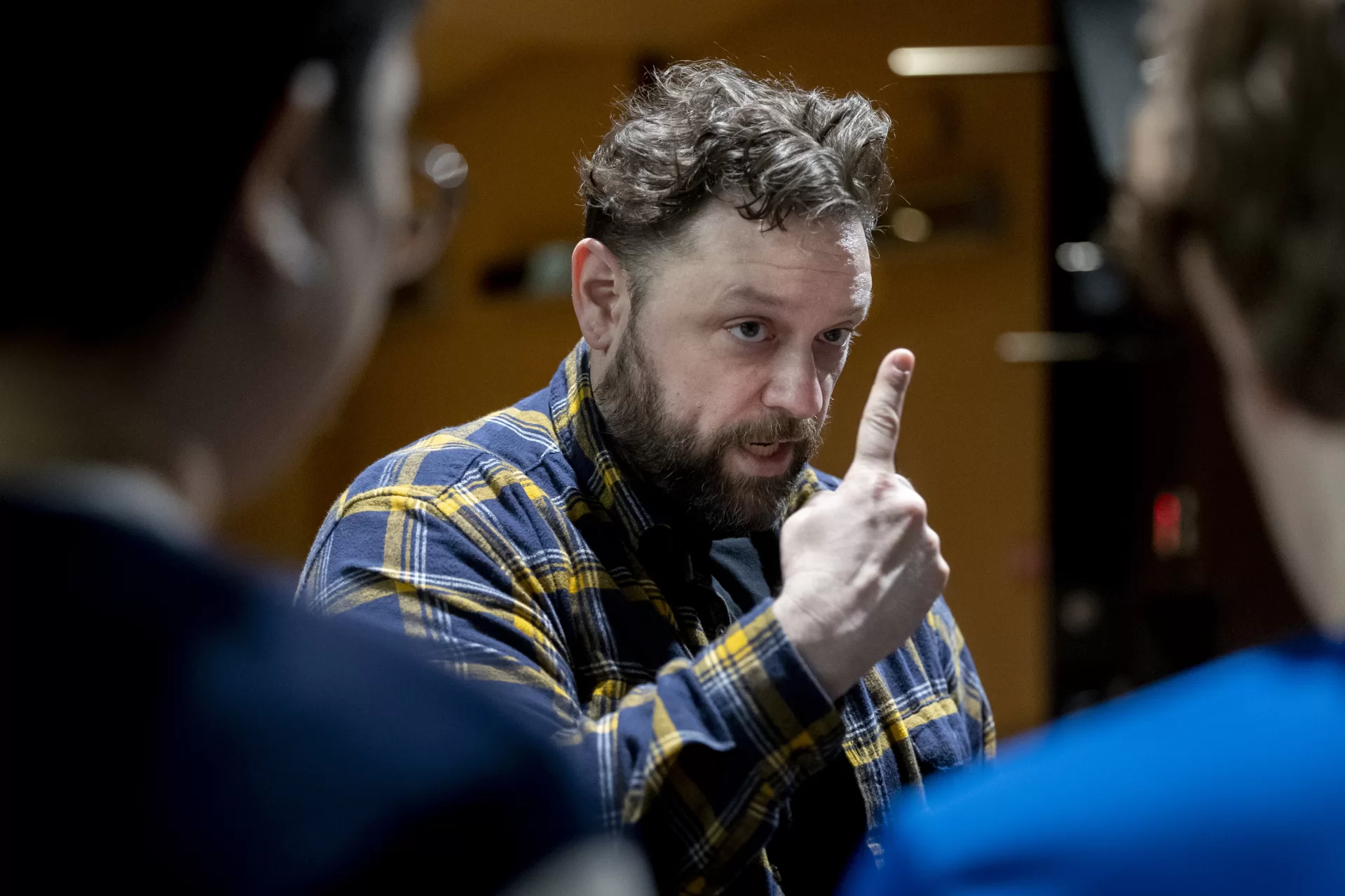
During the Friday session, Broulik led the cast in warmup exercises to get a feel for how their bodies interact with each other and the stage. There were games, focusing on expression, movement, and emotions. “Friday was to get students playing more ensemble and really making big choices and following impulse,” said Dugan.
Some of the exercises that Broulik led tapped into that closeness between tears and laughter: everyone stood in a circle, and took turns “passing the laugh,” and then “passing the cry.” Dugan was impressed with how the students responded to Broulik’s methods. “It was done in such an embodied, authentic, honest way. It was really moving,” says Dugan.
Another exercise played on how to express emotion and tone without words. Broulik gave an action, like saying “hello,” and then set a tempo and a size for delivering it, on a scale of one to seven. An everyday “hello” would have a tempo and size of three, Broulik said, and you should never see a three onstage.
Clowning around, says Dugan, helps actors “think with their bodies” and “find different traits in their characters that they might not find by working analytically with script. And when we get to the play, we can kind of adjust the dial.”
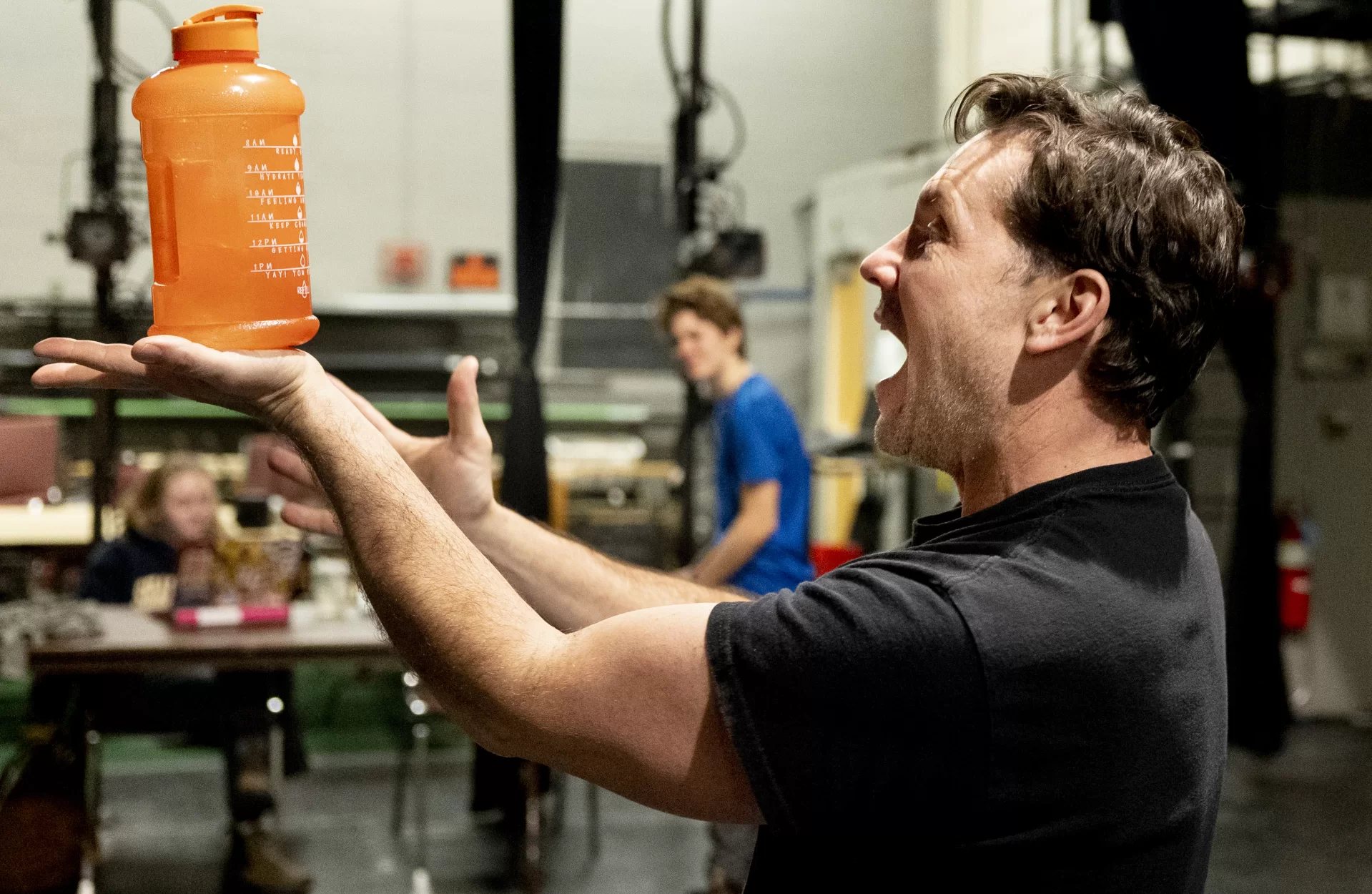
On Saturday, Broulik, who is an assistant professor of acting and directing at Central Connecticut State University and producing artistic director of Time’s Fool Company, led a second session that was geared toward the “clowns” in the ensemble: Dogberry, Verges, and the four members of the Watch, a comedic group of locals moonlighting as a sort of neighborhood watch.
Joaquin Torres ’25 of Silang, Philippines, is playing the part of Verges, second-in-command to Dogberry, leader of the Watch. It’s Torres’ first time playing a clown character, and finding their inner clown has been one of the best parts of the process.
During one exercise, they ran around the stage to find an object, and then acted as if that object was something they’d never seen before.
“I found a tape measure and I was like, ‘what the hell is this?’ Like I knew what a tape measure is and I know what it does, but actually using it was like, in the eyes of a clown, in the eyes of a child, I guess, who is just learning about the world, it’s just a refreshing feeling.”
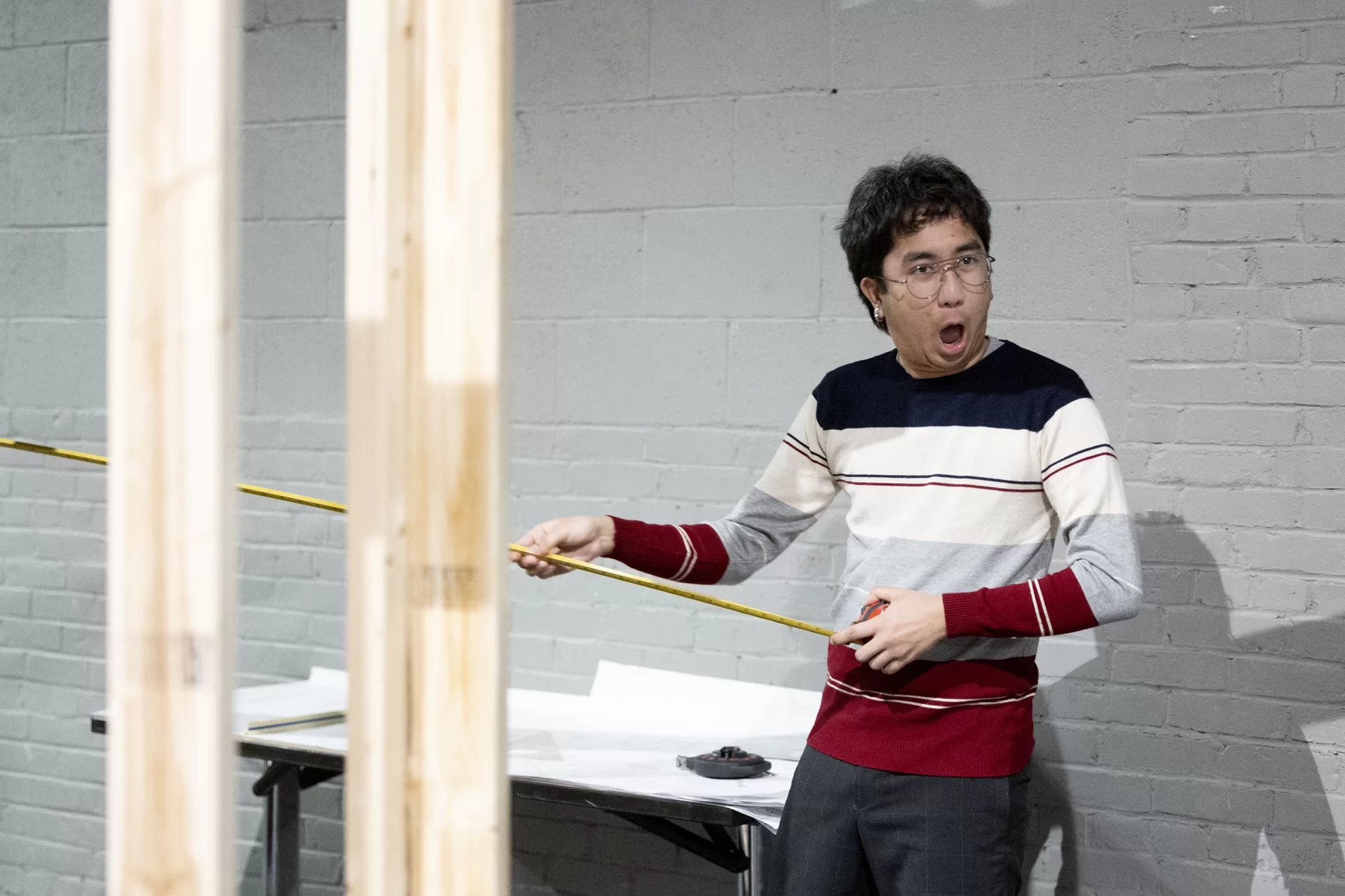
“There’s no reason to feel afraid of acting stupid or crazy,” Torres said. “It’s so much fun to embrace your inner clown, no matter whether you’re acting or in real life.”
Broulik and Dugan have worked together in various theater productions for about a decade. Broulik’s approach to making theater — and clowning — is just right for this play and in this year, says Dugan. “I want this particular production, nearly post-COVID, to be a raucous celebration.”
Last summer, Dugan was directed by Broulik in a production of Much Ado About Nothing staged by the Saratoga Shakespeare Company in New York. Dugan played Benedick, one of the main characters, and a member of the Watch. The production was presented in the round, with few set pieces and costume changes, which meant that Dugan and his fellow actors had to tap into their physicality — their inner clown.
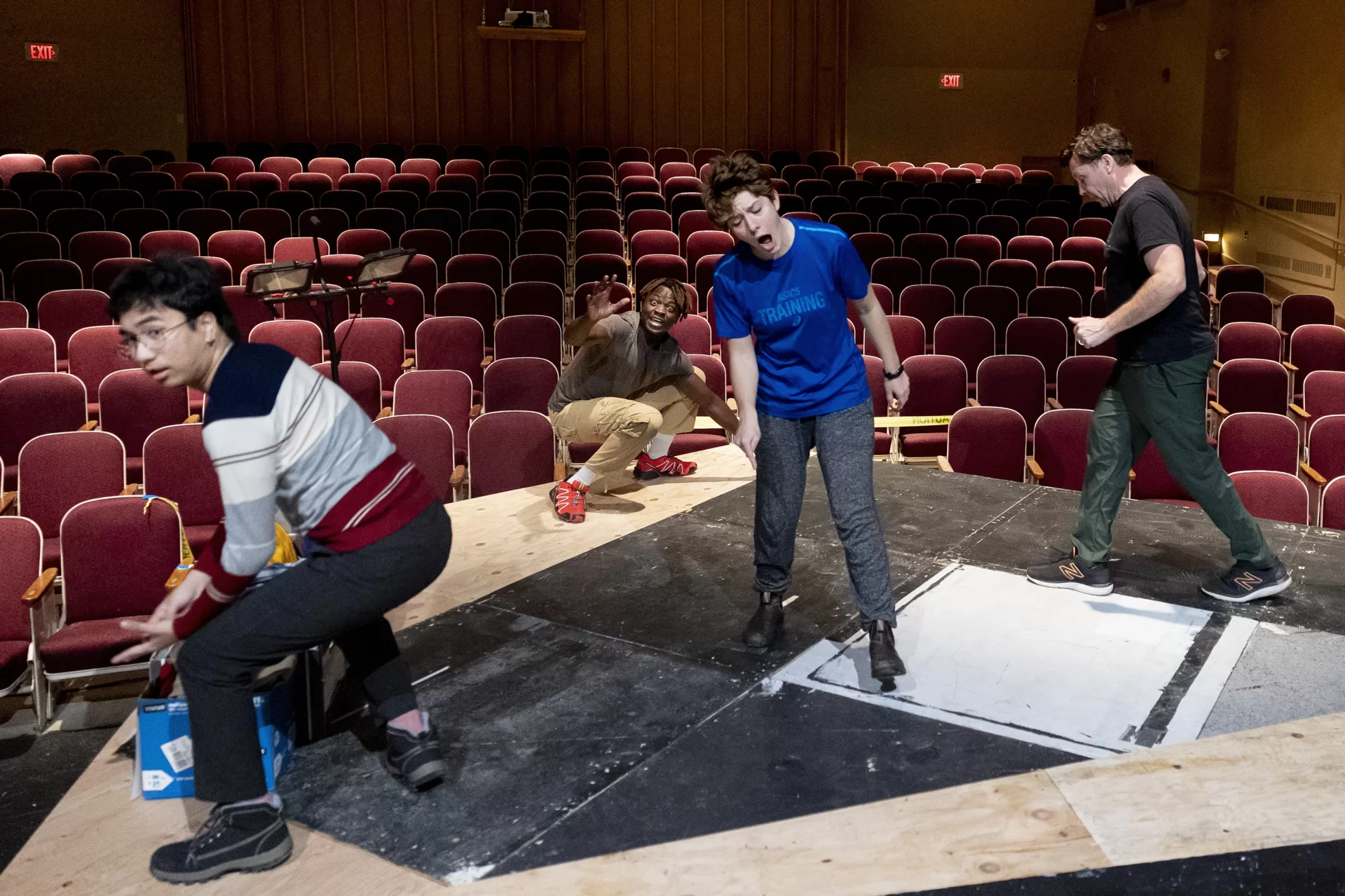
That got Dugan thinking about how he wanted the Bates production of Much Ado to feel.
“There are so many different ways to come into a Shakespeare play as a director, and what interests me in this moment and time for Much Ado is the focus on celebrating human reconnection coming out of something traumatic like a war or a pandemic,” said Dugan.
“What is it like to laugh, embrace, or share a summer evening with friends and loved ones? I don’t want to give away all of the surprises, but the energy and spirit of a raucous celebration infuses every aspect of this production.”
